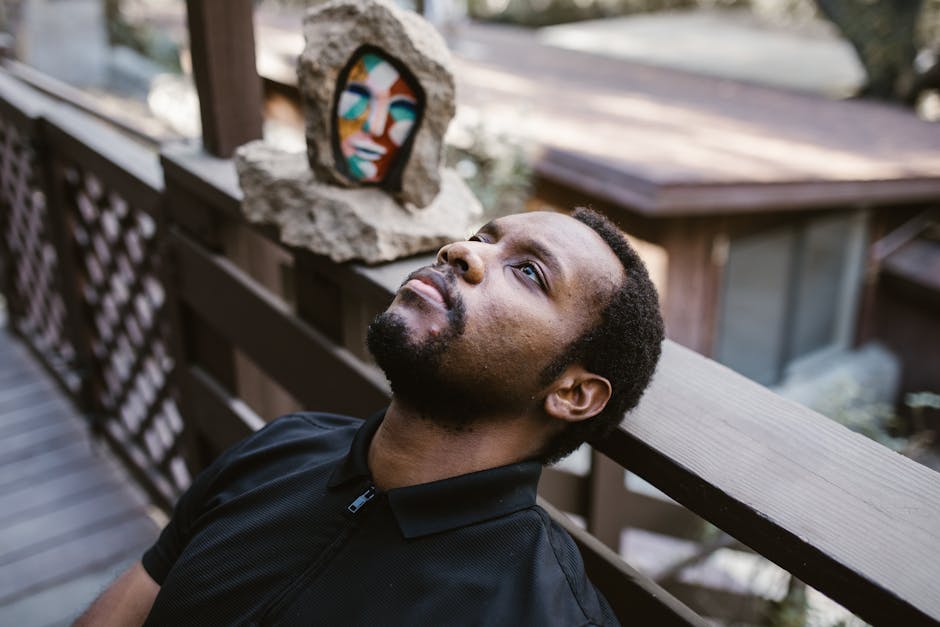Relationships & Communication
Exploring the Dynamics of 'Relationships Not Boundaries' in Personal Relationships

Content Outline
- Introduction
- A. Understanding the Difference Between Relationships and Boundaries
- B. Importance of Setting Healthy Boundaries in Relationships
Introduction
In today's interconnected world, the concept of relationships not boundaries is gaining traction as a guiding principle in various aspects of life. This shift is particularly noteworthy in the realm of personal relationships, where individuals are reevaluating traditional boundaries and exploring more open and fluid dynamics. Let's delve into the dynamics of relationships in the context of 'relationships not boundaries'.
When it comes to interpersonal connections, setting boundaries has long been considered essential for maintaining healthy relationships. Boundaries help define expectations, establish respect, and safeguard individual autonomy. However, the rigid enforcement of boundaries can sometimes lead to disconnect and stagnation in relationships, hindering growth and emotional intimacy.
Embracing the concept of relationships not boundaries encourages a more nuanced approach to connection, where flexibility, communication, and mutual understanding take precedence. It involves recognizing that relationships evolve and that individuals have the capacity to grow together without being confined by strict rules or limitations.
Research studies have shown that fostering open communication and adaptability in relationships can lead to increased satisfaction and a deeper sense of connectionsource. By prioritizing empathy and active listening, individuals can navigate complexities and conflicts more effectively, fostering a stronger and more resilient bond.
In conclusion, the paradigm of 'relationships not boundaries' offers a refreshing perspective on how we approach and nurture relationships. While boundaries are important for maintaining respect and autonomy, embracing fluidity and openness can lead to more dynamic and fulfilling connections. Stay tuned as we explore the nuances and benefits of prioritizing relationships over boundaries in the upcoming sections of this blog series.
Understanding the Difference Between Relationships and Boundaries
When it comes to navigating interpersonal dynamics, having a clear understanding of the distinction between relationships and boundaries is crucial. While relationships are the connections we form with others based on shared interests, values, and emotions, boundaries set the limits and guidelines for how those relationships function.
One key aspect to consider is that relationships are built on trust, communication, and mutual respect. They require effort and nurturing to grow and thrive. By investing time and energy into our relationships, we can deepen our connections and create meaningful bonds with others. However, it is important to recognize that relationships can also be complex and multifaceted, requiring ongoing maintenance and adaptation.
On the other hand, boundaries are the framework that defines the parameters of our relationships. Setting boundaries is essential for establishing a sense of personal agency and self-respect. By clearly communicating our boundaries, we can ensure that our needs are being met and that we are not being taken advantage of. Boundaries can protect us from harm, both physical and emotional, and help us maintain a healthy sense of self.
It is important to note that finding the right balance between relationships and boundaries is a delicate dance. While healthy relationships require openness and vulnerability, boundaries are crucial for self-preservation and maintaining autonomy. By understanding and respecting these differences, we can cultivate healthier and more fulfilling connections with others.
Remember, when it comes to relationships not boundaries, the key is to prioritize open communication, mutual understanding, and a willingness to listen and adapt. By fostering a sense of empathy and respect within our relationships, we can build stronger connections that withstand the test of time.
Setting healthy boundaries in relationships is crucial for maintaining a positive and fulfilling connection with others. Boundaries help define our limits, protect our emotional and physical well-being, and enhance communication between individuals. When boundaries are respected, both parties can feel respected, understood, and valued.
Research indicates that establishing clear boundaries in relationships can lead to increased trust and mutual understanding source. In healthy relationships, individuals feel safe expressing their needs, emotions, and limitations without fearing judgment or rejection.
Boundaries provide a sense of predictability and stability in relationships, reducing the chances of misunderstandings and conflicts. By clearly communicating what is acceptable and what is not, individuals can avoid overstepping each other's boundaries and establish a foundation of mutual respect and empathy.
It is important to note that setting boundaries is not about building walls or creating distance but rather fostering a space where both individuals feel comfortable and secure. A balance between independence and connection is essential for healthy relationships to thrive source.
In conclusion, prioritizing healthy boundaries in relationships is key to nurturing strong and harmonious connections. By valuing each other's autonomy and needs, individuals can cultivate a deep sense of trust and intimacy. Remember, relationships are about mutual growth and understanding, not just about setting limitations relationships not boundaries.
Transform Your Finances as a Couple
Start planning and saving as a couple with our Couple's Budgeting Tool. Work together to manage your finances, reach your shared goals, and build a stronger financial future, side by side.
Related Articles
Mastering Communication in Relationships: An Essential Guide
Explore the importance of communication in relationships and learn effective communication skills, a...
Relationships & Communication • 2024-09-07Navigating Relationships in New Zealand: Tips for a Harmonious Connection
Explore the dynamics of relationships in New Zealand and discover key advice for couples to foster e...
Relationships & Communication • 2024-09-05Understanding One-Sided Emotional Connection in Relationships
Explore the signs, causes, and consequences of one-sided emotional connection in relationships, alon...
Relationships & Communication • 2024-09-04
Categories
- Relationships & Travel
- Remote Work
- Data Visualization
- Relationships & Adventure
- Relationships & Mental Health
- Business & Project Management
- Language and Writing
- Self-improvement
- Healthcare Management
- Relationships & Online Communities
- Therapy and Counselling
- Animated Love Stories
- Spirituality and Conflict Resolution
- HR & Leadership
- Robotics and Technology
- Cybersecurity
- Relationship Counselling
- Relationships & Technology
- Job Interviews
- Parenting & Child Development